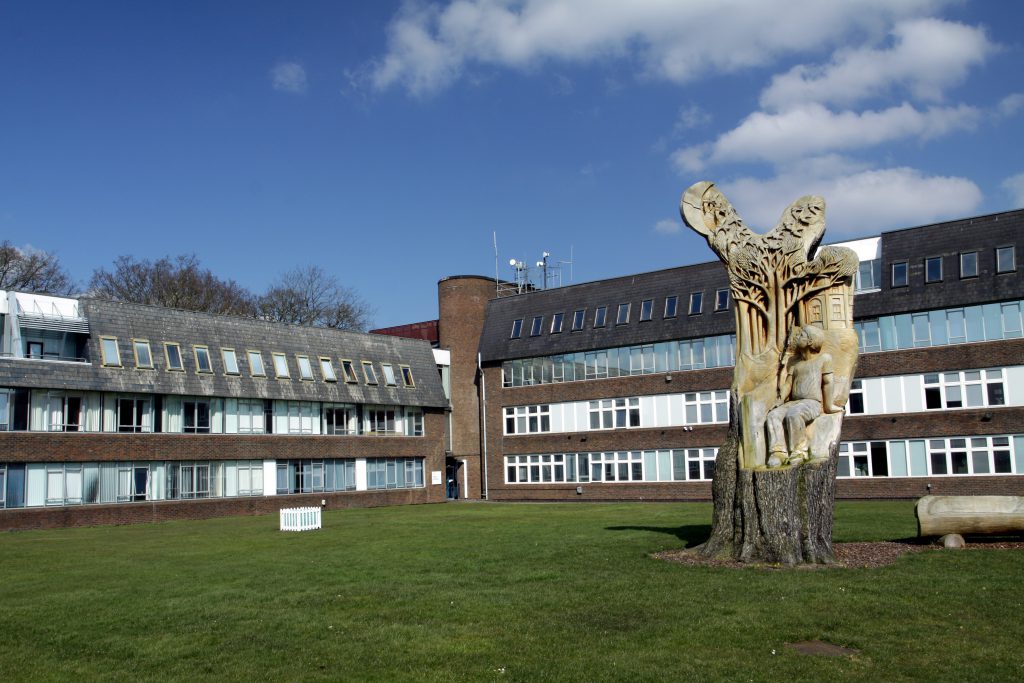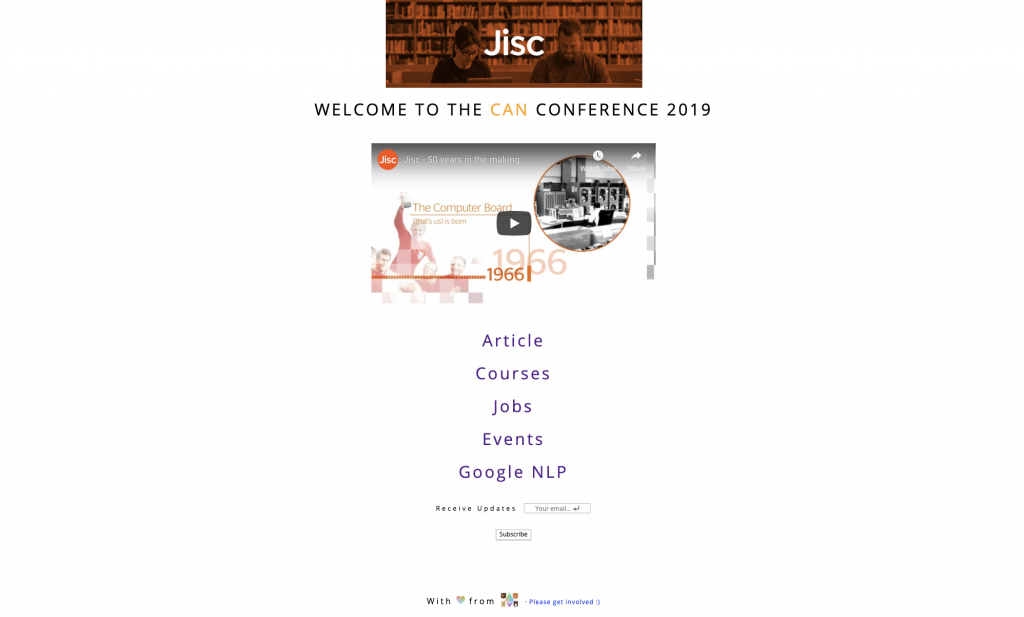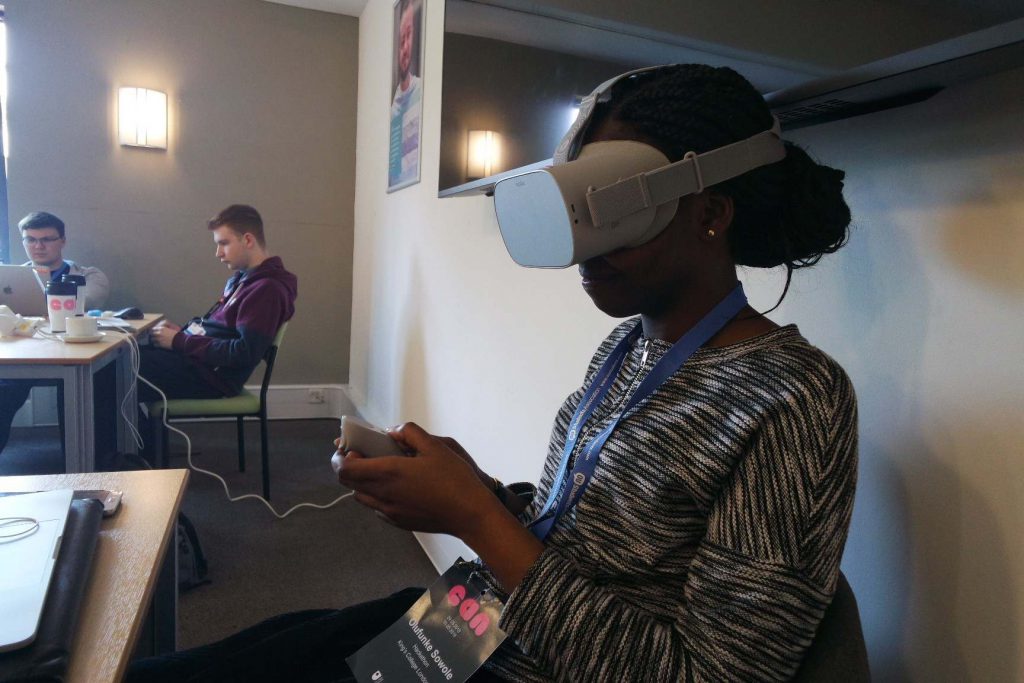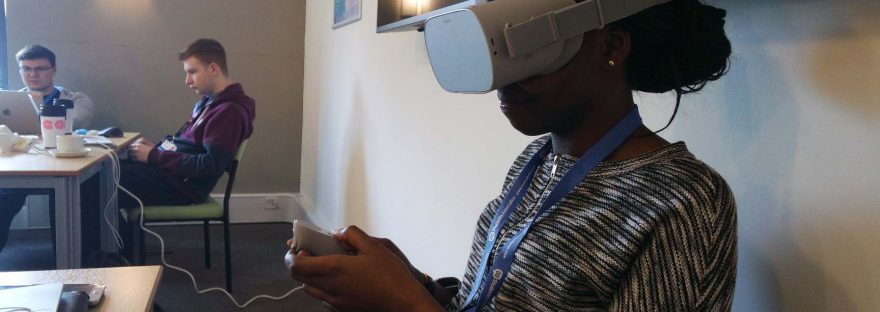The 2019 ‘Change Agents and Network’ (CAN) Conference hosted by JISC brought academics from the UK (and worldwide) together. The conference was held at the Open University Walton Hall in Milton Keynes, England. The aim of the CAN conference was to understand the ‘evolving landscape of staff-student partnership’. How can technology be used to support the learning experience for students? Part of the Conference was a Student Hackathon.

JISC is a UK research organisation which aims to support post-16 students and higher education students through the research they generate. JISC researches methods to develop new technology and ways of working; and provides advice, digital resources and network and technology resources.
During the CAN Conference in 2019, JISC has organised for student teams from universities and colleges across the UK to join the Summer Hackathon. We attended the Hackathon as King’s College London’s representatives. In this blog post, we are going to demonstrate what our project was about, what we presented as a result at the conference and what we learnt throughout the Hackathon at the CAN conference.

The hackathon was a student lead ‘feature’ of the CAN conference. We were asked to design, develop and build an application that would benefit students for one of four themes:
- Student wellbeing – develop technology to improve students’ wellbeing and boost achievement.
- Shaping the curriculum – how do we make the curriculum more exciting and give students the education that they want and need?
- AI or intelligent assistants to support learning – can we get smarter about student learning?
- Intelligent campus – help us make the campus more responsive and welcoming.
We focused on ‘shaping the curriculum’ for students. Our main idea was to build an event-recommending system where students can easily search for relevant events and opportunities on campus, to provide the education they need. For instance, if there are guest lectures on campus that may be related to certain modules or careers, students may wish to attend them. The idea was to establish a platform that recommends relevant events and on-going opportunities for students.
However, due to unforeseen circumstances, we had to reconsider our project plan. Our new project focused on building a virtual career-advising platform with a Natural Language Processing (NLP) element in the website. Although we did not have enough time to cover all the aspects of NLP, we created a front-end, career-advising website which linked via URLS to an NLP, job search, and education website, and presented it at the conference.

It was not all work throughout the hackathon! During our breaks we got the opportunity to play around with Virtual Reality headsets. The VR headset puts the viewer in the position of a student who is unwell one day, but explores in which the student can continue to engage with their university education through the use of technology. We also took time outside of the hackathon to network with academics and researchers who attended the main conference too. JISC also invited us to a Gala Dinner!
At the end of the conference, we presented our project to the wider CAN conference. All projects including ours caught the attention of the audience with lots of interesting questions.
At the end of this project, we were awarded with a £100 Amazon voucher. We learnt very important lessons throughout the hackathon. Despite the fact that we had a limited amount of time and resources, we learnt how to effectively re-direct our work and make the most out of it. It was fortunate that we were able to mingle with lots of amazing students from a wide variety of disciplines.
The skills we acquired, the networks we formed and the challenges we overcame throughout the project and the conference were invaluable and can be transferred to other areas of work and life. We would like to thank all the Hackathon staff, students and organisers along with the King’s CTEL team for organising this event.
Written by Taeyang Jung & Funke Sowole
Taeyang Jung is a 3rd year BSc student of Economics & Management in King’s College London. He is part of the Digital Education Student Committee (DESC). His interests include programming, AI and playing the piano.
Funke Sowole is a 3rd year BSc student of Computer Science in King’s College London. She is part of the Digital Education Student Committee (DESC), and took on the role of communications officer alongside Fatema in late 2018. In her spare time, Funke enjoys reading books, problem-solving, speaking to people on the tube and travelling to different countries. Post-graduation, her goals include setting up an educational foundation to increase access to education in developing communities.
